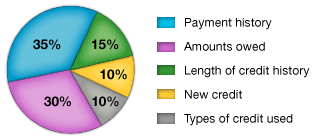 FHA loans are loans that are insured by (HUD) Housing Urban and Development. FHA loans have been around since the 1930’s right after the “Great Depression.” This was when 4 out of 10 households owned a home. (FHA) Federal Housing Administration is the savior for our current market just like it was back during the roaring 30’s.With FHA loans especially during a credit crunch like we are currently are in, you can rest assure banks are willing to be more lenient to approve credit challenged borrowers with FHA financing. The reason is FHA loans are insured by HUD, and if the borrower looses the home HUD will pay a claim to lender for the loss. FHA is the largest single insurer of loans in the world.
FHA loans are loans that are insured by (HUD) Housing Urban and Development. FHA loans have been around since the 1930’s right after the “Great Depression.” This was when 4 out of 10 households owned a home. (FHA) Federal Housing Administration is the savior for our current market just like it was back during the roaring 30’s.With FHA loans especially during a credit crunch like we are currently are in, you can rest assure banks are willing to be more lenient to approve credit challenged borrowers with FHA financing. The reason is FHA loans are insured by HUD, and if the borrower looses the home HUD will pay a claim to lender for the loss. FHA is the largest single insurer of loans in the world.
FHA Advantages.
• Lower interest rates, typically interest rates are lower on FHA loans with the banks since they are government insured loans
• Only requires minimum investment from borrower of 3% down payment, which can be eliminated by Down Payment Assistance. So essential you can get a 100% financing with FHA loans. Note: Requires Seller participation
• If you have less than perfect credit you can typically can get a loan with FHA, they usually like to see 12 to 24 months clean credit report history. You can even get a loan while in chapter 13 bankruptcy.
• No Credit Score Requirement
• Recent loan limits increased-varies from state to state; go here to find out. For example you can buy a home in the state of Texas with FHA up to $271,050. Depending on if your state is a high cost area; obviously this loan limit would be higher.
• Will allow alternate lines of credit if not good history is on credit report.
Example:
1. Letter from any utility company stating you have been on-time with your payment history for that last 12 months.
2. 12 month payment history from car insurance company, cell phone company and even daycare will work.
If you are currently in the market to buy or maybe you feel like you need credit repair, what ever your direction is, getting a FHA loan is not as hard as you think. FHA gets people approved that may not get approved with other loan types. The first step is to examine where you are at with a lender and get the ball rolling. IN this current market some lenders are requiring you to either have a 580 credit score or higher. They will also allow no credit score but your interest rate is higher than current market rates. This is going on even though FHA has no credit score requirement; this is due to bad performance of loans below the credit score benchmark of 580.






